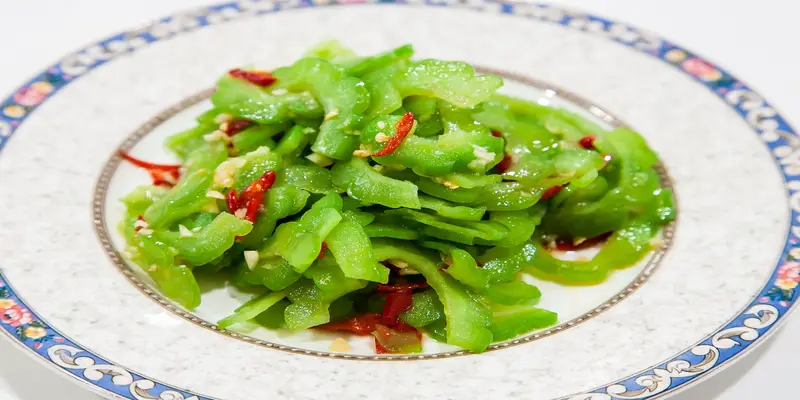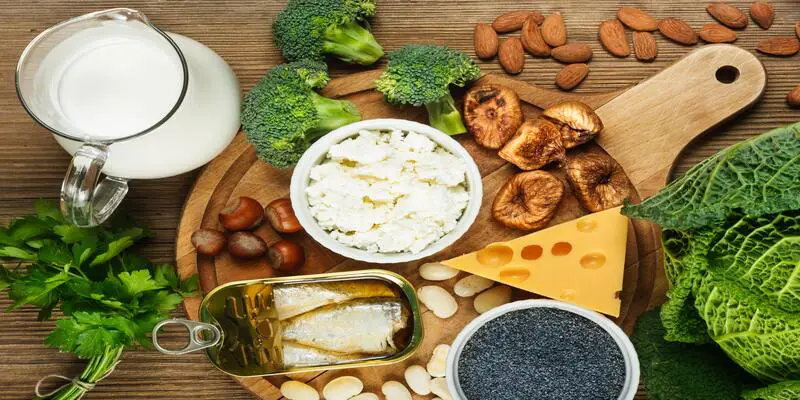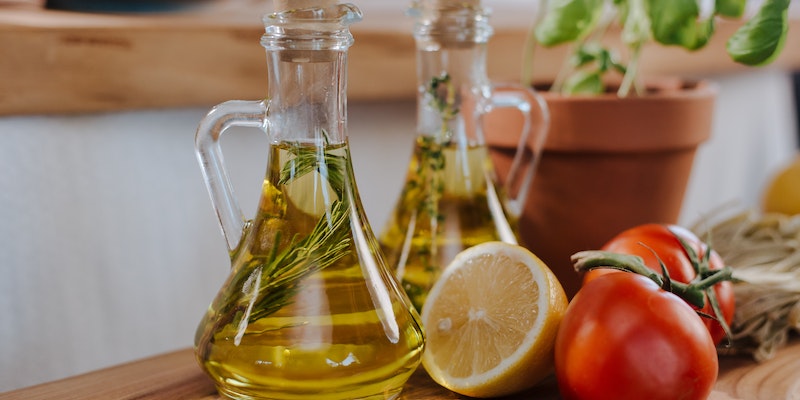A popular vegetable throughout Chinese and Indian cuisine is a bitter melon gourd, sometimes known as balsam pear or karela. Despite its bitter taste, there are several health benefits that it may provide to your body, brain, eyes, and even skin. A review published on May 25, 2022, in the peer-reviewed publication Food Production, Processing, and Nutrition notes that bitter gourd "may be a source containing several important nutrients."
Raw vs. Cooked Bitter Melon Gourd
Berries may vary in nutritional content depending on variety, preparation, cooking method, and portion size. However, the USDA states that 100 grams of both raw and cooked bitter melon gourd provide the following nutrients:
- There are 17 calories.
- Grams of fat: 0.2
- One gram of protein
- Grams of starches: 3.7
- 2.8 grams of fiber
- 1.9 grams of sugar
- Milligrams of L-ascorbic destructive (84).
- Cell support: 471 micrograms
- Folate (micrograms): 72
- 296 milligrams of potassium
- 17 milligrams of magnesium
- 0.4 milligrams of iron
- 0.8 milligrams of zinc
The going with supplements are contained in 100 grams of cooked bitter melon gourd (murmured, depleted, and sans salt):
- There are 19 calories.
- Grams of fat: 0.2
- Grams of protein: 0.9
- Fourteen grams of starches
- 2 grams of fiber
- 1.6 grams of sugar
- 38 milligrams of L-ascorbic destructive
- 257 micrograms of vitamin A
- Folate: 51 micrograms
- 319 milligrams of potassium
- 19 milligrams of magnesium
- 0.4 milligrams of iron
- 0.6 milligrams of zinc
Nutrients in Raw Bitter Melon Gourd
A highly nutrient-dense vegetable, raw bitter melon gourd is full of important vitamins and minerals. It has particularly high potassium, vitamin C, and vitamin A content. Because it includes a lot of nutritional fiber and antioxidants, bitter melon gourd is a good supplement to a balanced diet.
Vitamin C
Of all the bitter melon kinds, the raw ones are the most vitamin C-rich and edible. A cup of raw bitter melon pods has 78 milligrams of vitamin C, according to MyFoodData.com. When searching for healthy sources of vitamin C, raw, peeled bitter gourd is a great option because it contains 87% of the daily recommended intake of this crucial antioxidant.
Folate
Compared to cooked gourds, a cup of raw, bitter melon gourds has 17% more folate than the daily recommended amount. A November 3, 2021, Cleveland Clinic article describes folate as a B vitamin that "helps make DNA and other genetic material." "It's also needed for the cells to divide" [^4^]. The Clinic states that folate, which is present in bitter melon and other foods, is necessary for good health since it decreases blood pressure and the risk of cardiovascular disease and Alzheimer's.
Nutrition of Cooked Bitter Melon Gourd

Cooked bitter melon gourd still has a high nutritional profile since it retains important vitamins and minerals. It retains a lot of potassium, vitamin C, and vitamin A after cooking. Furthermore, heating can improve some nutrients' bioavailability, which makes it a useful addition to meals.
Choline
Raw bitter melon has no choline at all, but a 1-cup portion of cooked karela includes 13.9 milligrams of this vitamin, according to the USDA. The body uses choline to keep cell membranes in good condition. "All plant and animal cells require choline to preserve their structural integrity," according to the NIH. "In addition, choline is needed to produce acetylcholine, an important neurotransmitter for memory, mood, muscle control, and other brain and nervous system functions.".
Lutein + Zeaxanthin
The USDA states that raw pods provide 158 micrograms of lutein and zeaxanthin, compared to 1,660 micrograms in one cup of cooked bitter melon gourd. According to the American Optometric Association, carotenoids like lutein and zeaxanthin aid in shielding the eyes against retinal damage-related macular degeneration. Additionally, they shield the skin from UV-ray damage brought on by the sun.
Potassium

A cupful of cooked bitter melon gourd has 402 mg of potassium; raw pods provide 275 mg. Magnesium, sodium, and chloride are the other main minerals that support the body's electrolyte balance in addition to potassium. According to the Mayo Clinic, hypokalemia, or having too little potassium in the body, can cause weakness, exhaustion, cramping in the muscles, an upset stomach, and an irregular pulse.
Conclusion
Beneficial nutrients, minerals, antioxidants, and phytochemicals may be found in bitter melon gourds. The way it's prepared and eaten affects its nutritional content and health advantages. Raw bitter melon gourds are higher in fiber, sugar, vitamin C, vitamin A, folate, and zinc but lower in calories, carbohydrates, and potassium than cooked varieties. Since heating extracts are part of the health benefits, raw bitter melon gourd has higher amounts of antioxidant, antidiabetic, antibacterial, and anti-inflammatory actions.







